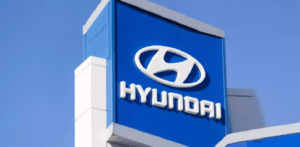Hyundai IPO: Is It a Smart Investment? Despite Strong Initial Subscription, Investors Should Tread Cautiously
Hyundai Motor India’s IPO has captured the attention of investors, with retail investors showing particular enthusiasm. However, while the company’s strong market presence and innovative product lineup are promising, it’s essential to consider the risks associated with the IPO before making an investment decision.
Rising costs of essential parts and materials pose a significant threat to the company’s business and financial performance. Additionally, conflicts of interest may arise due to the interconnected nature of Hyundai Motor India, Kia Corporation, and Kia India. These factors could potentially impact the company’s operations and profitability.
While Hyundai Motor India’s IPO offers the opportunity to participate in the growth of a leading automotive player, investors should carefully evaluate the risks and weigh them against the potential rewards. It’s advisable to conduct thorough research and seek professional advice before making any investment decisions.
CONTENTS:

Hyundai IPO: Is It a Smart Investment?
IPO subscribed 18% on Day 1
On Day 1 of Hyundai Motor India’s ₹27,870 crore IPO, 18% of the total shares were subscribed. Retail investors accounted for 26%, non-institutional investors 13%, employees 80%, and qualified institutional buyers 5%. The IPO will close on October 17. Hyundai’s peers include Maruti Suzuki (P/E of 29.7), Tata Motors (P/E of 11.4), and Mahindra & Mahindra (P/E of 31.1), while Hyundai itself has a P/E ratio of 26.2. Hensex Securities recommends subscribing to the IPO for long-term investors, citing Hyundai’s strong market presence, product range, technological innovations, and expansion into EVs. The company holds a 14-17% domestic market share and is India’s second-largest auto OEM.
IPO faces several risks
Hyundai Motor India’s red herring prospectus (RHP) outlines several risks, including potential negative impacts on business and financial performance due to rising costs of essential parts and materials. The activities of Kia Corporation and Kia India, both part of the same group, may create conflicts of interest that could affect Hyundai’s business. Additionally, Hyundai’s ongoing transactions with entities within the Hyundai Motor Group could lead to similar conflicts.
Hyundai Motor India’s COO, Tarun Garg, emphasized that the IPO would enhance the company’s connection with retail investors and align its practices with global standards. He noted that post-IPO, quarterly calls would improve communication with investors and support operational excellence and governance. The company expects the IPO to strengthen its market position and drive automotive innovation.
The offering includes Hyundai Korea offloading ₹25,000 crore in shares via an offer-for-sale (OFS) in Indian markets, timed to coincide with Diwali. Hyundai’s stock in South Korea trades at a modest 5x P/E ratio, and while its India unit contributes only 6.5% to global revenues and 8% to profitability, it is projected to be valued at 42% of the parent company’s market cap after listing. However, Aequitas Investments pointed out that, given the global automotive industry’s challenges and a potential slowdown in India, the IPO may not be an attractive opportunity for Indian investors.
Check out TimesWordle.com for all the latest news
You must be logged in to post a comment.